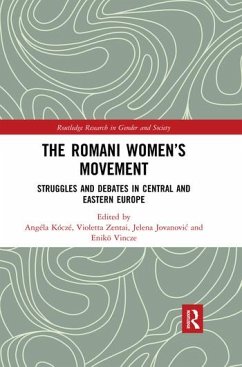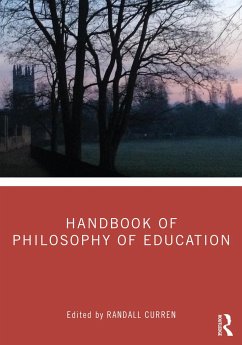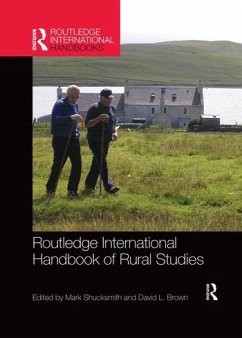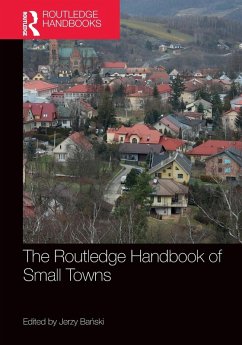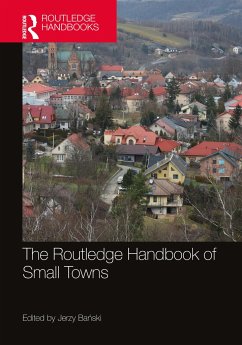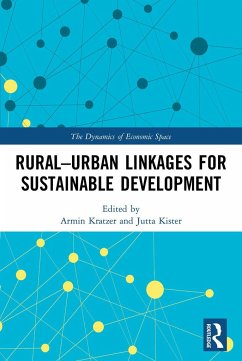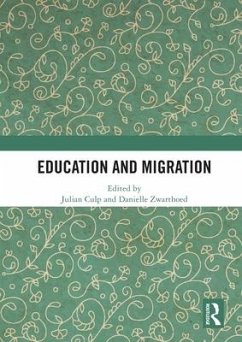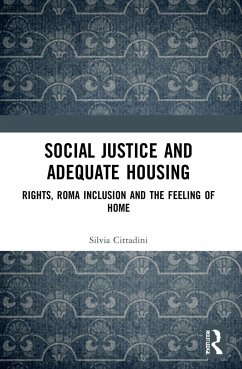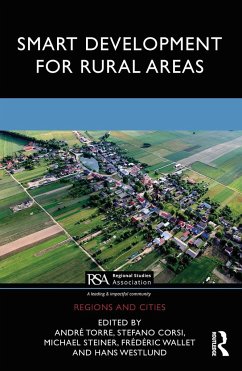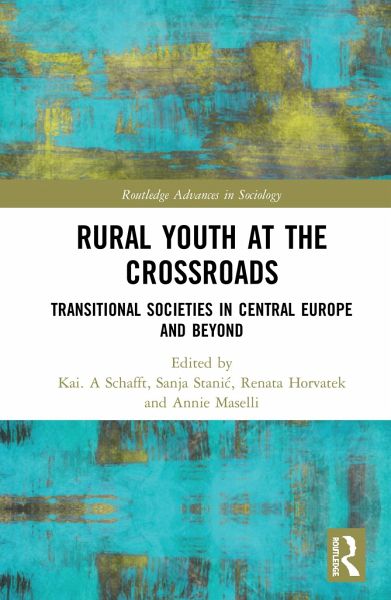
Rural Youth at the Crossroads
Transitional Societies in Central Europe and Beyond
Herausgegeben: Schafft, Kai. A; Stanic, Sanja; Horvatek, Renata; Maselli, Annie
Versandkostenfrei!
Versandfertig in 6-10 Tagen
45,99 €
inkl. MwSt.

PAYBACK Punkte
23 °P sammeln!
Featuring chapters by an international group of scholars and academics, Rural Youth at the Crossroads discusses the challenges and contexts facing youth from rural communities in countries with legacies of socialism undergoing social, political, and economic transition.The chapters employ a variety of sources and approaches to examine rural youth outcomes, and the well-being and sustainability of rural areas. The book focuses particularly on career and educational goals, the often contradictory relations between rural schools and communities, majority-minoritized group relations, community eng...
Featuring chapters by an international group of scholars and academics, Rural Youth at the Crossroads discusses the challenges and contexts facing youth from rural communities in countries with legacies of socialism undergoing social, political, and economic transition.
The chapters employ a variety of sources and approaches to examine rural youth outcomes, and the well-being and sustainability of rural areas. The book focuses particularly on career and educational goals, the often contradictory relations between rural schools and communities, majority-minoritized group relations, community engagement, and political attitudes. Individual chapters examine these questions and dynamics within Croatia, Czechia, Hungary, Romania, Russia, Serbia, and Vietnam. In total the volume represents a unique and timely comparative discussion of the relationship between youth and rural development within transitional societies, and the challenges and opportunities for enhancing the well-being and sustainability of rural communities.
Aimed at informing strategies to revitalize rural social space, this book is targeted towards social scientists with interest in sociology and rural sociology, demography, education, youth development, community/regional development, rurality, public policy, and identity formation in transitional contexts. As such, this book will have international appeal to researchers, educators, and policymakers in transitional countries, and to those interested in these topics, regions, and communities.
The chapters employ a variety of sources and approaches to examine rural youth outcomes, and the well-being and sustainability of rural areas. The book focuses particularly on career and educational goals, the often contradictory relations between rural schools and communities, majority-minoritized group relations, community engagement, and political attitudes. Individual chapters examine these questions and dynamics within Croatia, Czechia, Hungary, Romania, Russia, Serbia, and Vietnam. In total the volume represents a unique and timely comparative discussion of the relationship between youth and rural development within transitional societies, and the challenges and opportunities for enhancing the well-being and sustainability of rural communities.
Aimed at informing strategies to revitalize rural social space, this book is targeted towards social scientists with interest in sociology and rural sociology, demography, education, youth development, community/regional development, rurality, public policy, and identity formation in transitional contexts. As such, this book will have international appeal to researchers, educators, and policymakers in transitional countries, and to those interested in these topics, regions, and communities.





